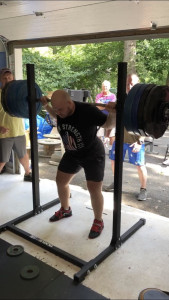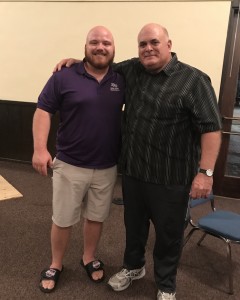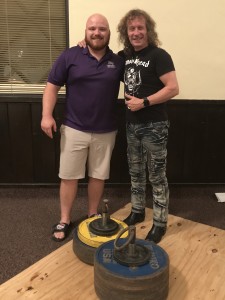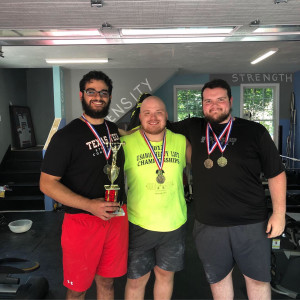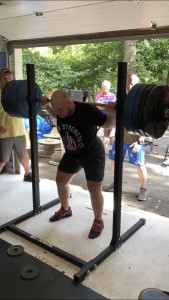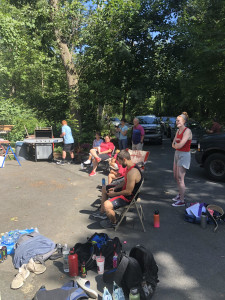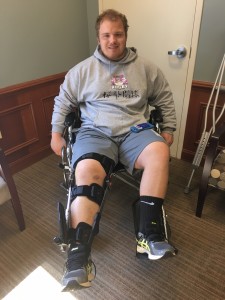By Christopher Lestan
When we grow up and attend school we often are told to use the books that are distributed to us have all the answers. From elementary all the way to college this is true, for some classes only have information from the book.
This couldn’t be further from the truth when it comes to any form of Strength and Conditioning.
I currently study at Umass Amherst as a Kinesiology major with a path of Strength and Conditioning. Most of my days are spent at the library trying to memorize every muscle, tendon, and bone in the body. Nights are long, and all-nighters tend to be very common. This is due to the fact that UMass puts kinesiology in the same category as Nursing, Medicine, Physical, and Occupational Therapy. Thus, the classes I take are close to the medical level to some degree. The major is difficult, but there is one thing I have noticed working in the Strength and Conditioning Field for three years. Textbooks don’t answer everything.
I took my first internship at Athletic Republic, a gym centered around sports performance with athletes ranging from high school to pro. When we had meetings on what to do with the athletes, our schedules, and hours they recommended that we learn the basic compound movements. This sounded strange since I thought to be in this field you had to have some sort of passion, and the capability to perform the basic compound movements. I soon realized I was the only intern who knew how to clean, snatch, bench, squat, and deadlift properly. As well as be able to teach movements to other athletes. I WAS SHOCKED. However, due to my ability to teach and perform the movements, I was hired after the internship.
Fast forward then to last semester at Umass I took a course in Strength and Conditioning which specialized in being certified a CSCS (the highest strength certification anyone can get). The only way to be picked to take this course was if you showed the desire to work with athletes in the future, and had a passion for strength. So naturally, I thought I would be with people very similar to me. I soon learned I was very very wrong. Other people who were in the same major as me couldn’t clean, snatch, deadlift, bench, or do basic push-ups correctly. I continued with the course and got an A- and moved on.
Fast forward to this summer, for I am working as a trainer at Athletic Republic. Part of my job is to help the new interns understand the system we run. Unfortunately, like my internship, and class before…. none of them knew how to do the basic movements properly except for one. This leads to my conclusion that textbooks don’t teach everything.
In today’s world, someone can flash their certifications, bachelor’s degree, a massive amount of Instagram followers, and their crazy physique and people will automatically assume that they are experts in the field. Now there are people like this that know how to program properly and use a ton of percentages to get out a quick strength cycle. However, I find the ones that have experience in competing, gaining strength, and technique that are the best coaches.
Take me for instance. I am no means a brain genius and a medical expert, yet I am 99% sure that I would beat most other kids in my major in teaching, coaching, and reputation due to my experience. The same can be said for other strength athletes out there. My neighbor Frank Ciavattone is my current coach/mentor and has increased my lifting abilities so much. I have a much more refined technique in Olympic lifting, all-around lifting, and powerlifting due to his advice and coaching. Frank doesn’t’ have all these certifications that will let other people know he’s a trainer. What he does have is trophies, experience, and knowledge that can’t be beaten.
The best coaches know how to demonstrate the lifts, and use their own experience to help others. They understand the stress strength athletes put on their bodies and the amount of energy it takes to put hundreds of pounds on their backs. They understand how much we need to recover from workouts and the amount of sleep we need. Those coaches, know exactly what an athlete is going through because they have been there.
The same can be said to anyone in the Strength World. If you are improving on your lifts, seeing results, and breaking Personal Bests than you probably will do well in the strength and conditioning world even though you haven’t used a textbook to get you to the place you are in now.
This can be said to everyone in the USAWA. We all learned how to lift from someone who was kind enough to give us some wisdom on how to perform these lifts. We didn’t just read a book and assume that it is the best way to perform the lift. We practiced, practiced, and practiced until we found our form. After a certain point, we don’t use books to help us execute lifts.
As I said before ….. Textbooks can’t teach everything….
